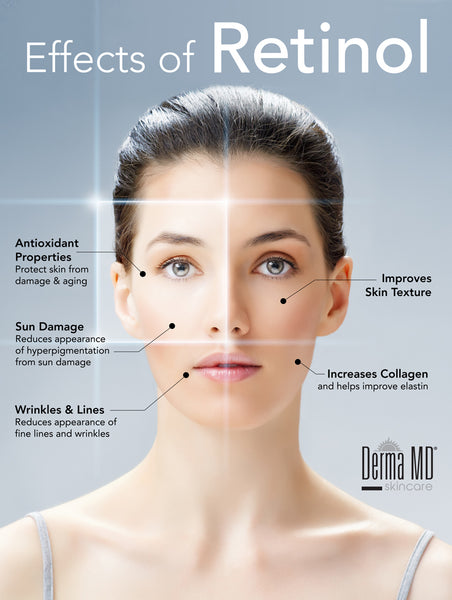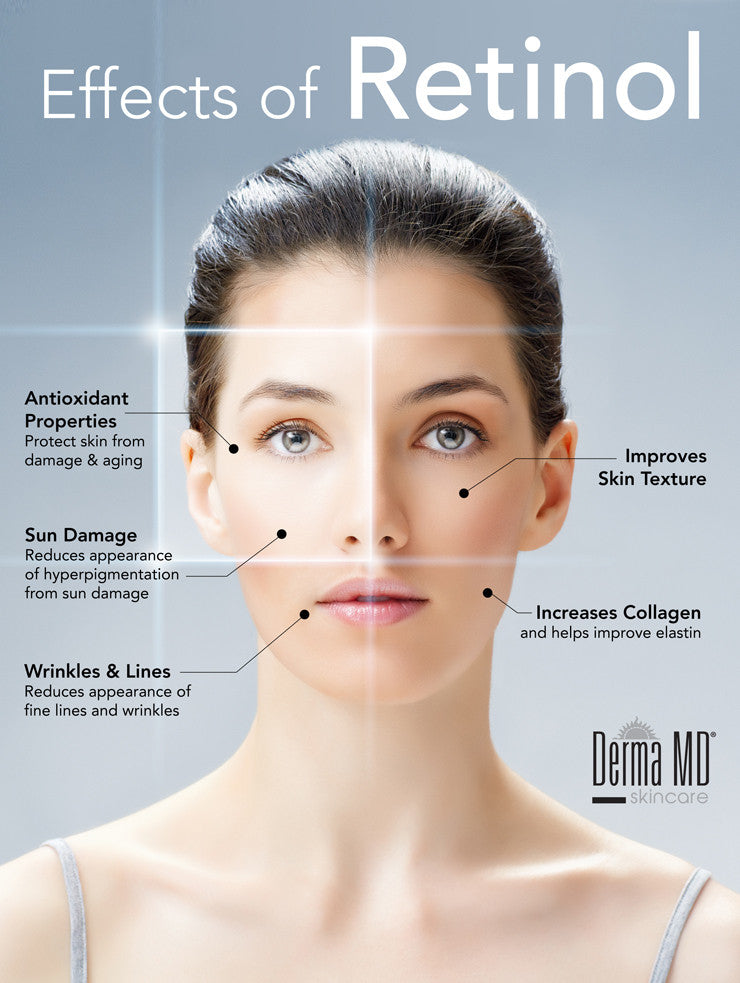Understanding Retinoids
Retin A® (tretinoin), causes much confusion when discussing a Retinol (vitamin A derivative) versus the newest in the family of Vitamin A, and that is Retinoid. To have a better understanding, Retin A® is prescription only, and both the Retin A® and other derivatives of Vitamin A have been shown to have significant positive effects on the skin. Derma MD® incorporates both Retinoid , Retinol and Retinoyl Palmitate in the product. The closest to Tretinoin (Vitamin A) that can be purchased without a prescription.
The difference between Retin A® and retinol or retinyl palmitate is that the latter two must convert to retinoic acid to actually become useful on the skin. Retinol and Retinyl Palmitate are non-irritating, more so than Retin A®, therefore they can be tolerated much easier.
Are Retinoids Right For You?
Before deciding which strength is right for you, it can be helpful to have a skincare consultation by a skincare professional or physician before you proceed. On the other hand, if this is not in your budget (although not all aestheticians charge for a consultation), you may just want to start with over-the-counter products such as Retinol or Retinyl Palmitate, which are more gentle and have very little, if any irritation, unlike tretinoins. When you are just beginning a regimen, start slowly, no more than 3-4 applications a week in the p.m.

Benefits Of Retinoid For The Skin
- Effective cell-communicating ingredient
- Exhibits strong antioxidant properties
- Improves skin texture
- Reduces appearance of wrinkles and other signs of aging.
- Has been shown to increase collagen production
- Helps reduce appearance of hyperpigmentation from sun damage
- Has been shown to help improve elastin
As you can see, due to all of its properties, retinol has long been considered an absolute must ingredient to help reverse signs of aging skin. It can obtain multiple results in a short period of time… So we ask ourselves, how much retinol does the skin need to see improvement? What should one review prior to purchasing a retinol product? Some questions you may ask yourself are:
- Do you have sensitive skin?
- Do you use a tanning bed?
- How much are you out in the sun?
- Do you have a lot of sun damage, dark spots, hyperpigmentation?
- What results are you expecting?
- What strength should you purchase?
These are just a few questions to consider.
Simply put, how much retinoid your skin needs depends on your skin type, skin concerns, and your level of tolerance.
Ready to see what Retinoid can do for your skin?
Derma MD®'s Retinoid Serum is a great place to start. This concentrated serum can reduce wrinkles, improve skin's texture, increase elasticity, and protect skin from damage, and results seen within 2-3 weeks of daily use.
Sheila Malmanis, L.E.
Founder of Derma MD Skincare®


Leave a comment